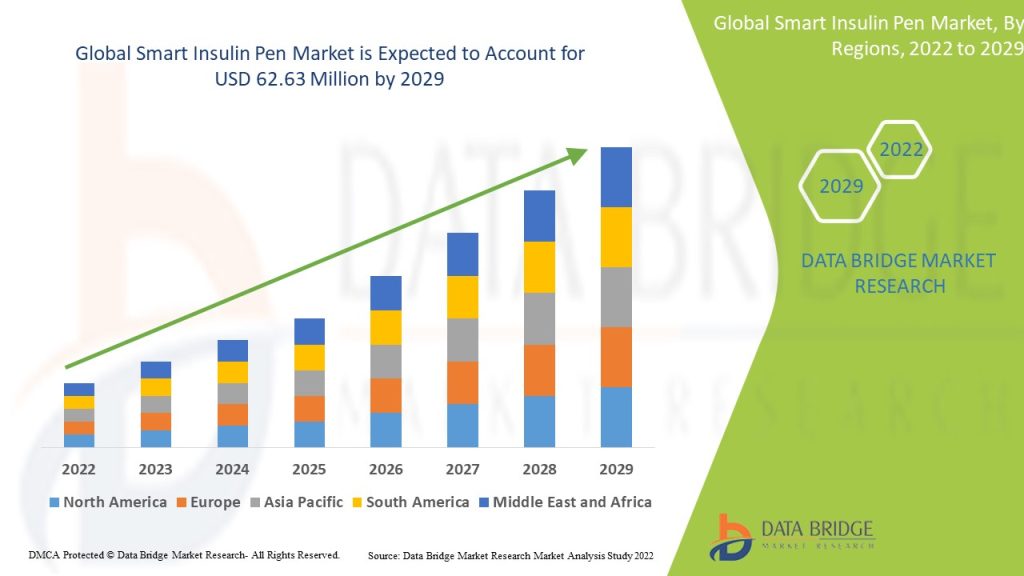A2Bookmarks India Social Bookmarking Website
Welcome to A2Bookmarks India, the premier social bookmarking platform tailored for individuals and businesses across India. Our website empowers you to effortlessly bookmark and showcase your web pages, driving enhanced online visibility and engagement. With specially curated business categories and the latest SEO-friendly tools and trends for 2025, we help elevate your digital footprint in a competitive online landscape. Join the A2Bookmarks India network today and take your website or business to new heights with ease and efficiency.


How Smart Insulin Pen Market Is Transforming Patient-Centered Treatment databridgemarketresearch.com
Introduction
The global healthcare industry is undergoing rapid transformation, and diabetes management is at the forefront of this change. Smart insulin pens have emerged as a breakthrough technology, addressing long-standing challenges of insulin dosage accuracy, patient adherence, and ease of use. With diabetes affecting millions worldwide, the demand for more efficient and connected solutions has fueled the growth of the smart insulin pen market. These devices are gaining traction not only among patients but also among healthcare providers who seek better monitoring and treatment outcomes.
Market Overview
The smart insulin pen market has shown strong growth in recent years, driven by rising diabetes prevalence, advancements in digital health technologies, and growing awareness of personalized medicine. These devices combine traditional insulin delivery with modern connectivity features such as Bluetooth integration and mobile app compatibility. They allow users to track dosages, receive reminders, and share data with healthcare providers in real time. As healthcare systems shift towards patient-centered and technology-driven care, smart insulin pens are becoming an essential part of the digital diabetes management ecosystem.
Key Drivers
Several factors are fueling the growth of this market:
-
Rising Diabetes Prevalence: With type 1 and type 2 diabetes cases increasing globally, there is a pressing need for better management solutions.
-
Technological Innovation: Integration of AI, IoT, and smartphone connectivity has enhanced usability and improved patient outcomes.
-
Regulatory Support: Many governments are encouraging digital health solutions to reduce the burden of chronic diseases.
-
Consumer Demand for Convenience: Patients prefer devices that are discreet, easy to use, and accurate.
-
Focus on Preventing Complications: Accurate insulin delivery reduces risks of hypoglycemia and long-term diabetes complications.
Challenges
Despite its growth potential, the smart insulin pen market faces challenges:
-
High Costs: Advanced devices are more expensive than traditional insulin pens, limiting adoption in cost-sensitive regions.
-
Limited Awareness: Many patients and healthcare providers are still unaware of the benefits of smart insulin pens.
-
Data Privacy Concerns: As devices collect health data, ensuring secure data management remains a priority.
-
Integration with Healthcare Systems: Compatibility with different healthcare platforms and electronic health records can be complex.
Segmentation Insights
The smart insulin pen market can be segmented as follows:
-
By Product Type:
-
Smart reusable insulin pens
-
Smart add-on devices for disposable pens
-
-
By Connectivity:
-
Bluetooth-enabled pens
-
USB-enabled pens
-
-
By End User:
-
Hospitals and clinics
-
Home care settings
-
Diabetes specialty centers
-
-
By Geography:
-
North America (leading due to high adoption of digital health technologies)
-
Europe (driven by supportive healthcare policies)
-
Asia-Pacific (showing the fastest growth due to large diabetic populations and rising awareness)
-
Rest of the World
-
Competitive Landscape
The competitive landscape is marked by strong R&D investment and strategic collaborations. Leading companies are focusing on integrating advanced digital features, expanding distribution channels, and forming partnerships with app developers and healthcare providers. Startups are also entering the market with innovative solutions, intensifying competition. Companies that emphasize user-friendly designs, affordability, and robust data security are well-positioned to capture market share.
Future Outlook
The future of the smart insulin pen market looks promising. The integration of AI-driven dosage recommendations, predictive analytics, and cloud-based health platforms is expected to redefine diabetes care. Growing awareness campaigns and healthcare digitization initiatives will further boost adoption. As prices decline and insurance coverage expands, smart insulin pens are likely to become mainstream, improving the quality of life for millions of diabetes patients worldwide.
Source: https://www.databridgemarketresearch.com/reports/global-smart-insulin-pen-market
Conclusion
The smart insulin pen market represents a major step forward in diabetes management. By combining innovation, connectivity, and patient-centric design, these devices are reshaping how insulin therapy is delivered and monitored. With growing adoption across regions, the market is set to play a pivotal role in improving global health outcomes. Staying informed about its growth, challenges, and opportunities is essential for patients, providers, and industry stakeholders.
FAQs
Q1. What is a smart insulin pen?
A smart insulin pen is a connected device that helps patients manage insulin delivery by tracking doses, offering reminders, and syncing data with apps or healthcare providers.
Q2. How is the smart insulin pen market growing?
The market is growing rapidly due to rising diabetes cases, technological innovations, and increasing demand for digital health solutions.
Q3. What are the key benefits of smart insulin pens?
They improve dosage accuracy, reduce risks of complications, enhance patient adherence, and provide valuable health data insights.
Q4. Which regions lead the smart insulin pen market?
North America and Europe currently dominate the market, while Asia-Pacific is expected to see the fastest growth.
Q5. What challenges does the market face?
High costs, limited awareness, and data privacy concerns are some of the challenges slowing widespread adoption.




















